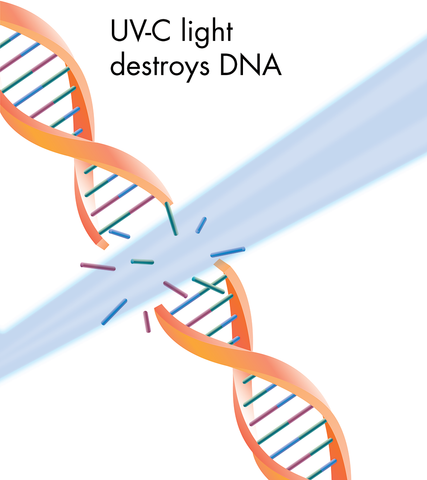Recent Posts
Should I use a UV sterilizer with my hydroponic water filter?
March 27, 2020
Rich Gellert
 The short answer is, if the feed water has not been chemically sterilized and the goal is to maintain a pathogen-free growing environment, or if you just want complete peace of mind with a backup sterilizer in place, then yes.
The short answer is, if the feed water has not been chemically sterilized and the goal is to maintain a pathogen-free growing environment, or if you just want complete peace of mind with a backup sterilizer in place, then yes.
What is a UV Sterilizer?
A UV sterilizer is a germicidal device that uses ultraviolet light to eliminate microorganism contamination. UV sterilizers are typically used where the presence of bacteria, algae, viruses and other microorganisms pose a potential health risk. While they are most often used to control the spread of biological contamination in water, UV sterilizers are also used to neutralize pathogens on dry surfaces.
When growing premium marijuana, there are several obvious reasons to keep a hydroponic setup free of pathogens and unwanted bacteria, and the best way to do this is to begin with a base of purified water. Typically, a reverse osmosis (RO) filter is used to purify the water, but there are some cases where a UV sterilizer may be required in addition to an RO water filter system.
How does an ultraviolet light sterilizer work?
The easiest way to explain UV disinfection is that the short, powerful wavelength of UV-C light destroys nucleic acids in a pathogen’s DNA. This knocks out their ability to infect, reproduce and perform vital cellular functions, which renders them harmless.
For optimum functionality, the water running through a UV sterilizer should be as clear as possible, and for that reason it is recommended to install after a sediment and/or reverse osmosis filter. If water remains stagnant for any amount of time, pathogens can accumulate on the surface of any kind of filter; having a UV as a “final pass” ensures complete sterilization before entering the hydroponic growing environment.
However, installing an extra layer of protection against viruses is never a bad idea, especially as public water quality violations, leading up to 2015, have been increasing. Water from non-municipal sources, wells, springs, surface water etc., are almost certain to contain living biologicals, including bacteria and viruses, and therefore UV sterilization is highly recommended.
